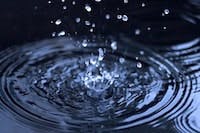The American Membrane Technology Assn. (AMTA) announced that John Potts, senior vice president at Kimley-Horn & Associates Inc. and Dr. Steve Duranceau, associate professor of environmental engineering at the University of Central Florida, have accepted invitations to become director emeritus members of the AMTA board of directors.
A director emeritus shall be past director of AMTA and an individual with significant experience with the industry and the association while also being capable of routinely sharing such experience with the AMTA board to aid in its decision-making processes.
Both Potts and Duranceau have served on the AMTA board for a number of years. Potts was the second vice president from 1997 to 2000. Duranceau held a number of positions for AMTA and was president from 2008 to 2010. They have both been recognized as membrane technology stalwarts; Potts was chosen as Outstanding AMTA member in 1996 and elected to the AMTA Hall of Fame in 2007. Duranceau received the AMTA Water Quality Person of the Year award in 2011.
The AMTA director emeritus committee has five members and consists of Ian Watson, Stuart McClellan and Irv Moch, in addition to newly appointed John Potts and Steve Duranceau.
Source: American Membrane Technology Assn.


